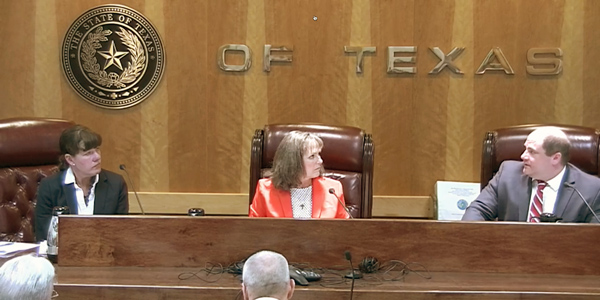Texas regulators last week issued requests for comments on real-time co-optimization (RTC) and incorporating marginal losses into dispatch decisions, proposals that have varying levels of stakeholder support.
On June 29, ERCOT’s Independent Market Monitor filed a report at the Public Utility Commission indicating RTC could have saved as much as $257 million in reduced congestion costs and $155 million in reduced ancillary service costs during the 2017 test year.
IMM Director Beth Garza told ERCOT’s Board of Directors on Aug. 7 that a significant cost of providing operating reserves is the lost opportunity cost of providing energy.
“The cost of containing those reserves, setting them aside, is the lost opportunity of selling that energy,” Garza said. “When initially selected in the day-ahead market, the costs of providing both energy and reserves are minimized. That is, co-optimized.”
During their Aug. 9 open meeting, the commissioners approved a set of questions as part of its review of RTC (Project No. 48540). They also approved a second group of questions related to incorporating marginal losses’ costs into dispatch (Project No. 48539).
A second report, filed by ERCOT, found the grid operator would benefit from RTC through its more efficient procurement of ancillary services and congestion management, and reduced reliability unit commitments.
The IMM and ERCOT will host a technical workshop on the two filed reports Sept. 6.
The PUC held a pair of workshops last year following a report coauthored by Harvard University’s William Hogan and FTI Consulting’s Susan Pope that recommended rule changes to address intermittent renewables and add incentives for generators. (See ERCOT, Regulators Discuss Need for Pricing Rule Changes.)
The PUC also published a list of questions on the review and approval of substations. It has scheduled an Oct. 4 workshop on the subject (Project No. 48251).
Commissioners Approve Tweaks to Retail Website
The commissioners approved staff’s suggested recommended changes to the PUC’s Power to Choose website, where consumers in Texas’ competitive areas can shop for electricity providers. The website has drawn the commission’s attention following consumer complaints of pricing gimmicks that result in unexpectedly high costs.
“We’ve been here before,” Commissioner Arthur D’Andrea said. “The commission thought we fixed this website, and now here we are again. I don’t want to be back here in two years doing the same thing.”
“Unfortunately, I think we may be because REPs [retail electric providers] adjust,” Chair DeAnn Walker said. She had reason to be pessimistic, saying she had recently met with a retail representative.
“People are already trying to figure out how to get around these” rule changes, Walker said.
Staff’s proposal adds a filter to weed out plans that offer low average prices at the 1,000-kWh usage level, when they cost significantly more for customers who average more than 1,000 kWh/month. The recommendations will also limit the number of offers a REP can list on the website to prevent them from “flooding” a page.
“Doing so will encourage REPs to use [their] available postings wisely, rather than repeating very similar offers to strategically dominate search results,” staff said.
PUC to Intervene in FERC Entergy Dockets
Following an executive session, the commissioners agreed to intervene in five dockets at FERC involving Entergy Services and cost-reimbursement agreements with its five operating companies (ER18-2079, et al.).
Entergy proposed last year to recover $5.9 million from Texas retail rates for Entergy Texas’ portion of construction costs for a pair of transmission control centers it built in Arkansas and Mississippi.
FERC set the agreements for settlement proceedings in February, but the company said the negotiations between Entergy Service its operating companies, commission staff and other parties were not “fruitful” and further discussions “would not resolve the issues in these proceedings.” The company filed cancellation notices for the reimbursement agreements with the commission in July. Entergy said no payments were made and no benefits received under the agreements.
— Tom Kleckner





